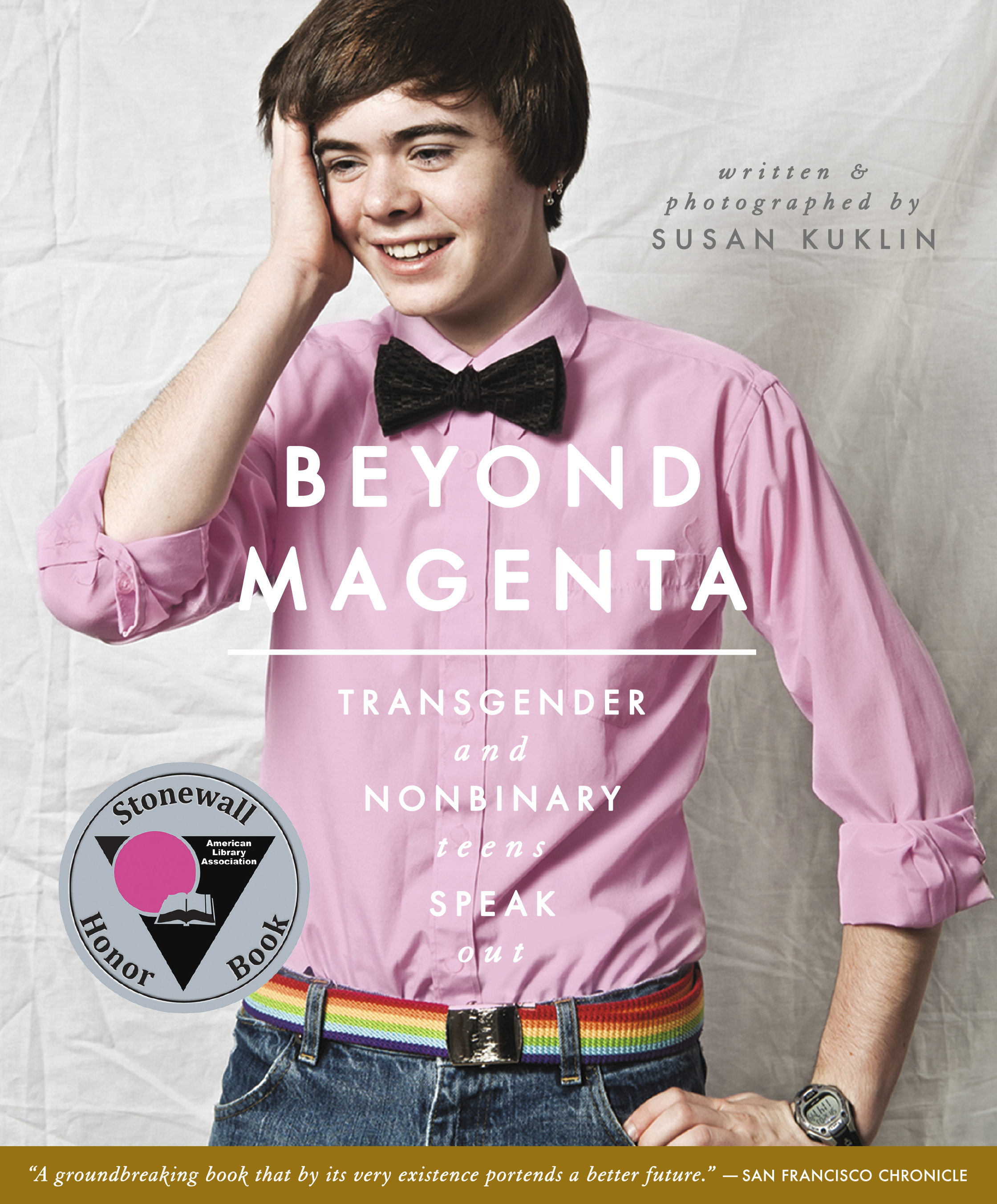What do you think?
Rate this book


182 pages, Hardcover
First published February 11, 2014
While “diversity” is seldom given as a reason for a challenge, it may in fact be an underlying and unspoken factor: the work is about people and issues others would prefer not to consider. Often, content addresses concerns of groups who have suffered historic and ongoing discrimination.To be sure, to be transgender (or gender fluid) is to diverge significantly from societal norms, and Beyond Magenta is most likely being attacked for exploring a kind of diversity many people find confrontational and uncomfortable.